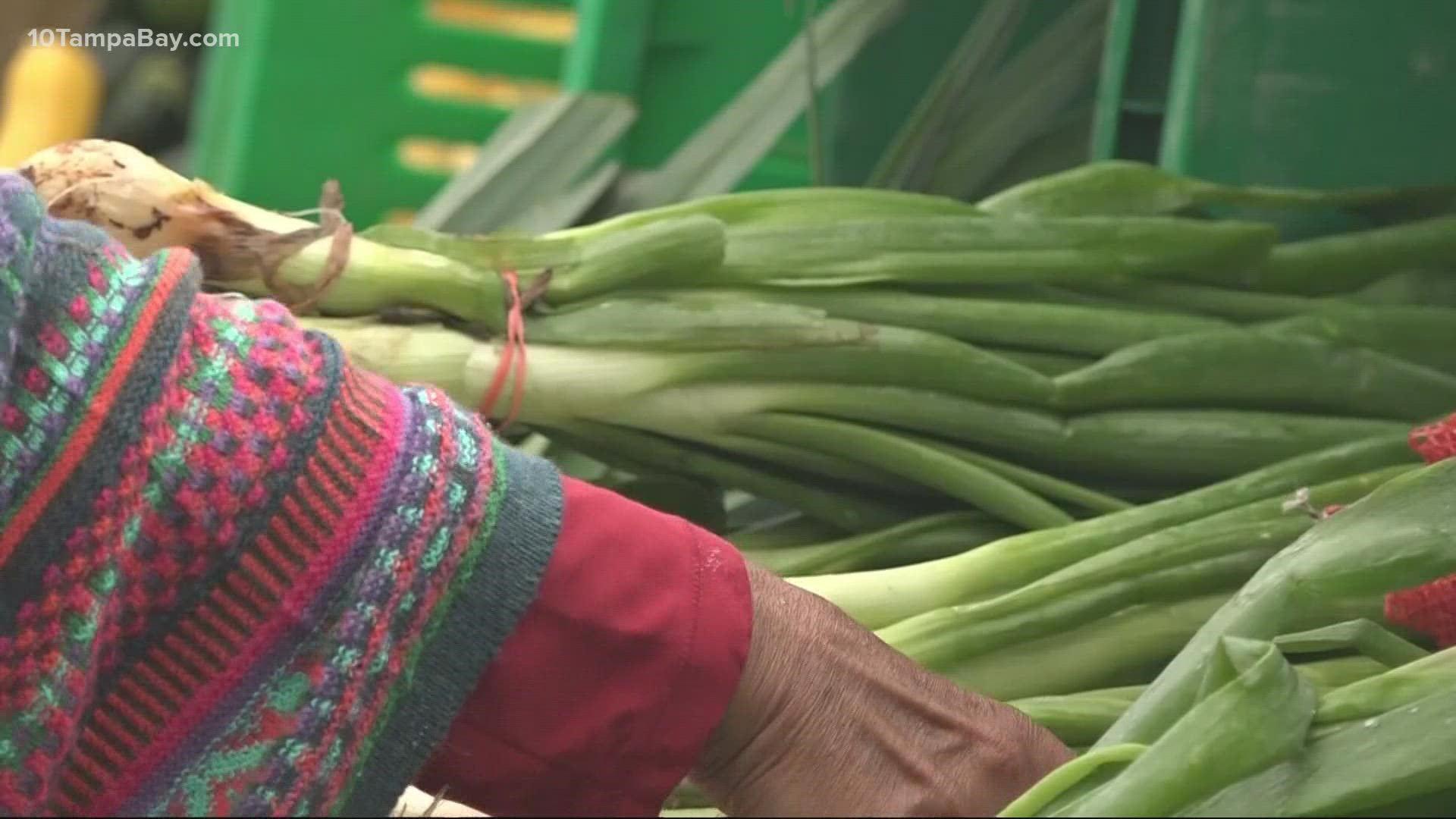ST. PETERSBURG, Fla. — Food, glorious food.
According to the University of Michigan Center for Sustainable Systems, food accounts for 10-30% of a household's carbon footprint. To break it down even further, food production accounts for 68% of food emissions, while transportation for that food accounts for 5.4%.
The words "Florida" and "agriculture" go hand-in-hand. The diverse climate conditions make it suitable for many types of crops, fruit, and livestock to grow and thrive year-round.
So, it's no surprise that roughly 115 farms in west-central Florida sell directly to retail, making it simple for consumers to source a large chunk of their diet with fresh and local produce.
Supporting local farms not only benefits the local economy but can impact our changing climate for the better. "Farm-to-Table" is no new concept, but Eva Worden, Ph.D., the owner of Worden Farms in Punta Gorda, Florida, explains that in addition to being a great economic value, shopping for the food you eat on a local level is a twofer.
"What you're getting is the fresh food, which has better longevity, so you don't go out as much and waste as much," Worden said.
While eating locally may appear to make only a minuscule influence on our climate, Worden explains that filling up the fridge with foods from local farms is also wonderful as far as reducing your environmental footprint.
"You also have lower transportation need," Worden said. "Instead of something coming from California or Mexico, or even farther away, it's only coming from just an hour south."
Worden Farms sits on an 85-acre stretch of land in Charlotte County. They pack their trucks full of organic produce and drive north on Interstate 75 each week to set up shop at the Sarasota and St. Petersburg farmer's markets every Saturday starting in October and lasting through May.
"We just bring it up here and sell it, and it goes out into the community," Worden said. "So, it's less footprint that way.”
Vegetables, in particular, are 95% water and heavy. Trucking those items coast-to-coast leads to a larger carbon footprint compared to sourcing those same items locally.
In addition to cross-country shipping, those vegetables and other food products are wrapped in Styrofoam and plastic before being sent to your favorite grocery.
Worden says that while the science is still developing around food transportation and its contribution to our changing climate, reducing our impact by reducing packaging can be really helpful as a consumer.
"It's amazing how much environmental impact the manufacturing and distribution of paper and plastic bags has. So when we're looking at climate and things like emissions, transportation and fossil fuel use, that has a contribution," Worden said.
The work on the farm doesn't stop during the summertime. For part of the season, Worden Farms grows cover crops which allows the fields to rest. These important crops, however, have multiple benefits and are hailed for their ability to reduce erosion, maintain and improve soil fertility, and adding carbon back into the soil.
Growing cover crops is one of many sustainable agriculture practices farmers use to help reduce the climate impact.
"That's considered a carbon-friendly practice in agriculture," Worden said. "It is something we do to contribute to soil building and to help with the water relations in the soil when we have heavy rains in the summer."
Access and affordability are still key barriers in accessing local food, but for those who have the means, supporting local farms is an investment for our future.

